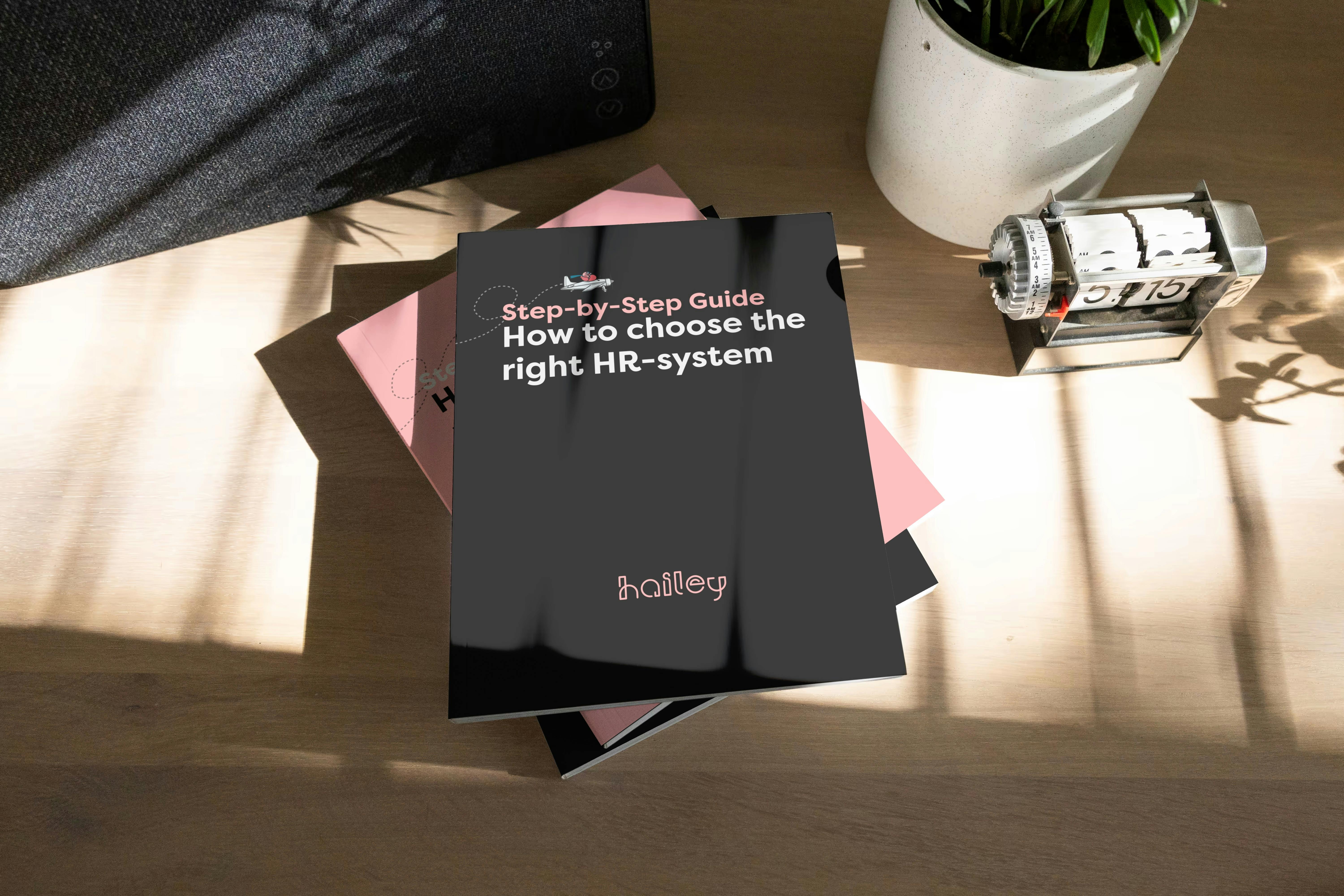
How to Navigate GDPR Requirements for Protecting Personal Data
As a business, you need to handle personal data responsibly and protect the rights of your employees. But what does that mean exactly? You don't want to risk hefty fines or reputational damage for not complying with the law.
There are steps you can take right now to ensure compliance with the General Data Protection Regulation (GDPR). By investing in secure HR software solutions and training staff on proper data handling procedures, you can make sure that all personal information is kept safe.
The legal
It is crucial to stay up-to-date with GDPR as it sets stringent rules regarding how businesses can collect and use personal data. Adhering to GDPR ensures that people’s privacy rights are respected, and organizations can avoid hefty fines and penalties for failing to comply.
Many HR departments need help and support to make sure all processes align with GDPR, while still being able to change internal processes to meet new demands in the company.
In this article the main focus is the internal HR processes and how to keep them GDPR-compliant. Take it in knowing our aim is to offer a general guide to modern, data-safe HR departments. Remember, when in doubt what applies to your company – always ask a lawyer for guidance.
Cloud Storage Replaces Paper Binders
With the advent of technology and the digital revolution, it is no surprise that HR work has also been impacted by digitization. This refers to the utilization of digital tools and methods to improve organizational functions related to human resources; integrated systems for recruiting, onboarding, tracking performance, managing benefits, or training employees.
By reducing manual work and introducing automated processes, digital HR software allows organizations to focus more time and resources on initiatives that encourage employee productivity and professional development. The digitalization streamline time-consuming tasks and reduce manual errors.
Let’s just say we have come a long way since flipping through those Paper Binders.
Automation can also improve communication between the HR department, employees, and other stakeholders. This improved efficiency fosters better engagement with managers as well as a stronger organizational culture.
But, HR digitization also comes with a number of potential obstacles and problems, especially when companies are utilizing multiple internal systems. You might have experienced one of the following situations:
- Personal data is sent unencrypted via email
- Notes in Word documents from employee meetings are saved locally on laptops
- Salary audit in Excel is sent unencrypted via email
Sensitive data must never get lost. Every company needs a robust HR system that handles all personal data in a safe way. The above situations are not examples of safe data handling.
A survey made by Deloitte showed some interesting results in this matter:
- 75% of companies understand the need for data security…
- ... but only 22% have good protection and systems in place to handle it.
Does your company belong to the 22 percent? Review your HR processes and choose GDPR-compliant systems. The best way to go is a centralized digital platform for everything HR related.
What is personal data?
"All data that can be used to identify a person is personal data"
Personal data is information that relates to an identified or identifiable living individual. It can include an individual's name, address, telephone number, email address, bank details and medical information, as well as any other information that could be used to identify someone. It also includes any opinions or views expressed about someone who has been identified or otherwise identifiable.
Individuals whose personal data is being collected must be informed of the purpose for which it is being collected, the legal basis for its processing and the rights they have under GDPR. It is also important to keep in mind that personal data must be deleted when it is no longer necessary or relevant.
Organizations must take appropriate measures to ensure they protect any personal data they process. These include:
- Ensuring that only authorized personnel have access to personal data.
- Establishing appropriate security measures for protecting against unauthorized access, alteration and disclosure of personal data.
- Regularly testing the effectiveness of any security measures put in place.
- Ensuring that all personal data is transferred securely and encrypted if necessary.
- Keeping records of any personal data that is processed and ensuring it is accurate and up to date.
- Introducing regular review procedures to ensure that any processing of personal data remains necessary, relevant and in accordance with legal requirements.
Organizations must also provide individuals with transparent information about how their personal data is processed and the rights they have regarding its use.
Special personal data
Special personal data include an individual's Social Security number, financial information, and other unique identifiers. It may also include biometric data such as fingerprints and facial recognition images. Special personal data is particularly sensitive because it can be used to track and identify individuals in a variety of contexts, including online transactions, medical records, banking activities, and more.
Sensitive personal data
Sensitive personal data refers to information regarding:
- Ethnicity
- Political opinions
- Sexual orientation
- Health data
- Union membership
Food preferences or allergies can also count as sensitive personal data, as it can be derived to information about health and religious beliefs.
This type ofl data is usually illegal to handle. Exceptions occur in the case of, for example, salary audits, when the employer may need to know union membership. The same applies to health status, which the employer may need to know in order to handle sick pay and rehabilitation matters.
Employee rights
Under the GDPR guidelines, employees have a variety of rights related to their personal data.
Right to information
When it comes to the right to information, employees are entitled under GDPR regulations to receive information from the employer about how their data is being processed, what it will be used for and who has access to it.
An appendix to the Employment Contract should outline the steps that must be taken to make sure salary processing is done right when it comes to personal data. It should also explain why and how external organizations like the Swedish Tax Agency and Social Insurance Agency can get information from this contract.
Right to register extracts
GDPR grants individuals the right to request a copy of any personal data that an organisation holds about them. This right is known as “the right to register extracts” and gives an individual access to any information held about them and how it is used. In other words, you need to have easy, yet secure, access to a lot of information about your employees. Because organizations must respond to requests within one month and provide a copy of the information in an easily readable format.
Right to rectification
Individuals also have the right to have their personal data corrected if it is inaccurate or incomplete. This right is known as “the right to rectification” and allows an individual to request that any incorrect information held about them be amended or updated. Organizations must respond within one month of receiving a request and must inform the individual of the action taken.
Right to erasure
Organizations also have an obligation to delete any personal data that is no longer necessary for the purpose it was collected. This right is known as “the right to erasure” or sometimes “the right to be forgotten” and individuals can exercise this right by requesting that their data be removed from the organization’s systems. It is important to note, however, that organizations may still need to retain some personal data in order to comply with other legal obligations.
Get started today
You are now well-informed on the subject of how HR and GDPR are related, and how to handle personal data. Time for the next step; to take control of your company’s HR data.
Hailey helps you stay up-to-date with GDPR and automates the entire HR process. Our robust system makes sure all data is kept safe with no risk of leaking. Employees and managers can update their personal information in one place, and everyone affected by the changes gets the information in the same system.
As an administrator, you decide the time limit for deletion of personal data when a person leaves the company. The system then handles the deletion according to your settings.
Hailey helps you work in accordance with GDPR
We understand that it can be challenging to keep track of everything. How long can we actually retain personal information about an employee? Which systems did we use to input the information? Hailey assists you in gaining control and automating the entire information management process.

